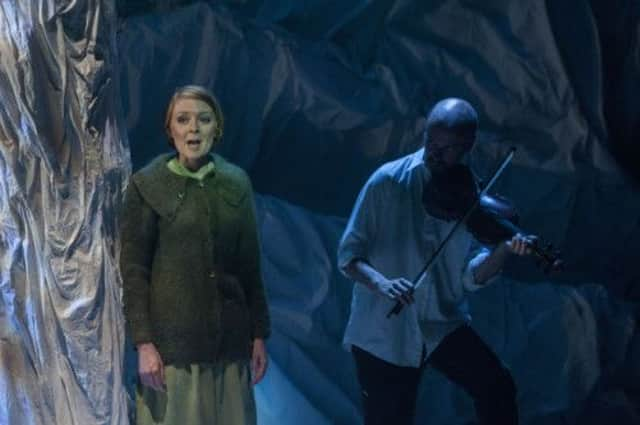Theatre review: Victoria, Dundee Rep


Rating: * * *
First staged by the Royal Shakespeare Company in London in 2000, the play invites us to imagine a three-and-half-hour episode of Monarch Of The Glen transformed by radical political intelligence, and a streak of pure dramatic poetry; the narrative is built around three generations of women, all called Victoria, whose shifting relationships with the place mirror its history.
So in the first act, The Bride, set in 1936, we see young Victoria the minister’s daughter, pregnant by her lover, Oscar, fleeing to America, while the young men of the estate plot to kill their young Nazi-loving laird. In The Crash (1974), a Vicky who may be Victoria’s daughter returns to the place after her flight crashes into the mountain; she stays to marry Oscar’s son Euan, who has rejected his father’s socialism, and is set to become a high-powered right-wing businessman. And in The Mountain (1996), Vicky and Euan’s rich-kid daughter tries to find a way forward after old Oscar’s death, while her father creates giant aggregate quarries that will consume the whole mountain.
Advertisement
Hide AdWhat emerges from this sweeping storyline – more or less – is a history of right-wing attitudes in 20th century Britain; of how the shrill authoritarianism of fascism morphed into the organised bullying of unstoppable corporate capitalism. And Philip Howard’s huge production – with a cast of 12, and a gigantic, strangely literal set by Neil Warmington – faithfully moves through the narrative, with the help of Gavin Marwick’s sharp and haunting live violin music, and some superb country-dance-based movement by Emily-Jane Boyle.
Yet in the end, there’s something about this play that delivers less than it promises. It seeks to describe the defeat of the Left, yet gives no real life to left-wing ideas. It offers a critique of fascism, but itself indulges in strange, unconvincing flights of mysticism about bonds of blood and soil. And it assigns a huge symbolic weight to the central characters in each generation – the radical leftist, the powerful authoritarian, the girl in search of truth – but allows only the girl to be played by the same actor throughout; so that the actors struggle to create consistent characters, and the audience is constantly battling to match the verbal cues of the script – here’s that left-wing Oscar again – against conflicting visual cues.
The result is some pretty sketchy acting, torn between heightened naturalism, and a jokey, satirical representation of Highland life; it’s perhaps no accident that the performers who emerge with most credit are those playing minor characters, including the company’s impressive new recruits, Caroline Deyga and Ncuti Gatwa.
Despite all the resource, affection and respect poured into this production, the effect remains slightly baffling; as if there is some huge meaning to be quarried out of the mighty rock of this play, but neither David Greig nor Philip Howard, his most dedicated director, has yet quite found the mechanism, the hard-edged structural digging machine, that would bring it into the light.